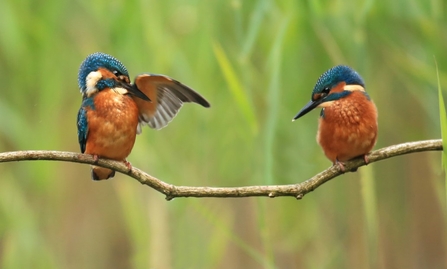As a child, Diwali, also known as the the Festival of Lights, always felt magical to me. The joy of celebrating with family, lighting diyas (oil lamps made from clay or wheat flour), creating vibrant rangoli patterns (intricate patterns created on the floor or tabletops using rice powder, chalk or coloured sand) and being surrounded by loved ones, filled the air with warmth and gratitude. Now, as an adult, this festival has deepened my appreciation for the natural world’s role in Diwali traditions.
Hinduism, one of the world’s oldest religions, holds nature in deep reverence, seeing it as a manifestation of the divine. As Diwali, the festival of lights, approaches, it's a perfect time to reflect on the sacred bond between nature and Hindu spirituality. Diwali not only symbolises the triumph of light over darkness but also highlights the close relationship between humans and the natural world. This connection is deeply rooted in Hindu traditions, beliefs and practices, making nature a central theme in both everyday life and religious festivals.


